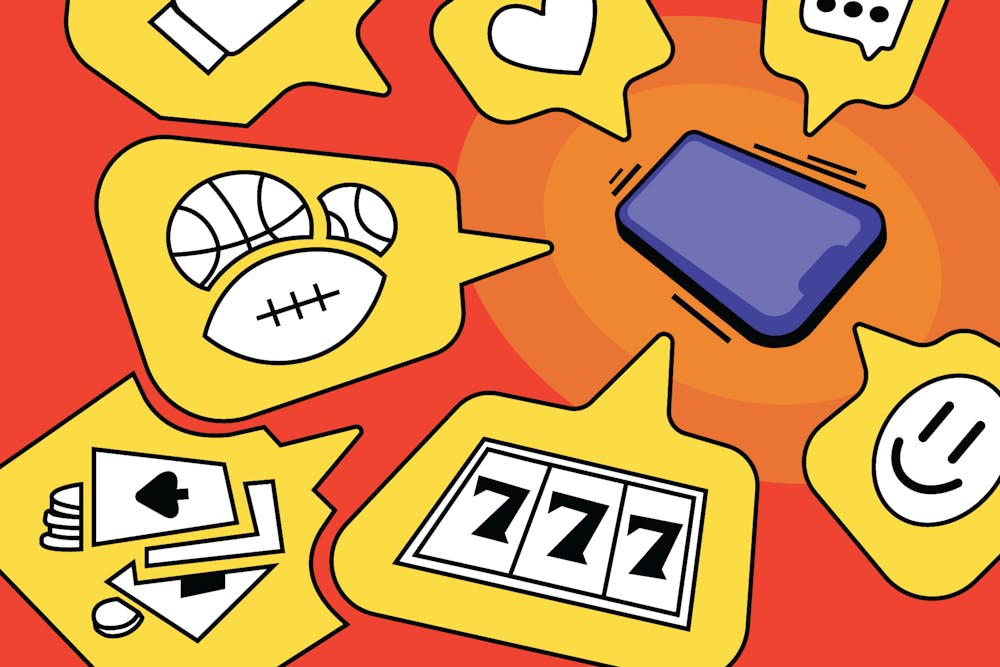Online gambling has become a major part of our national culture in recent years. Sports betting, in particular, has become especially popular among young adults and is a major factor driving the boom in online gambling.
Since sports betting hasn't even been legal for a full year in North Carolina, there isn’t much data yet about how college students here are participating. But I’d estimate that over half of all UNC students gamble, even higher among men specifically.
This didn’t happen by accident. Widespread adoption of gambling is the result of a massive marketing campaign gambling companies have undertaken in recent years in order to normalize it — with a focus on young people.
This goes beyond commercial breaks. They've spent millions on advertisements with famous celebrities. Sports betting apps have partnered with TV channels, sports teams and even leagues. Advertisements for Stake, a leading online casino, are plastered on memes. It’s become so ubiquitous that basically whenever you watch any sporting event, you’re going to see advertising for gambling.
Sports betting apps harvest their users' data to make complex and in-depth player profiles, so they can quickly determine whether or not you are addicted (and if so, how to best manipulate you into spending more).
This promotion has taken over other mediums, including, importantly, online live streaming. Many streamers, including those with large audiences of people under the age of 21, have taken massive sponsorship deals with online gambling companies. Some have gone even further by migrating to gambling-friendly platforms like Kick, which is backed by Stake.
Beyond Twitch streamers, video game developers have incorporated gambling-like mechanics into their games with loot boxes, items purchasable with real money that contain randomized content. Loot boxes are both very common and very profitable, with some estimating they alone will generate around $20 billion for the video game industry this year. Studies have found a link between loot box spending and problem gambling for both adults and children.
The fact that gambling is happening digitally has a disproportionate effect on younger people. The goal of casinos is to consume as much of our attention as possible and keep us hooked and coming back for more, even if it’s at the expense of our physical and mental health. Gambling is designed to be addictive, and the ease of access given by online platforms significantly increases the severity of addiction.
Because of this, it’s no surprise that gambling addiction hotlines across the country are seeing a dramatic uptick in the number of calls. Young people account for a large portion, largely driven by the expansion in sports betting. Experts warn that without proper regulations, we are on the verge of disaster.




